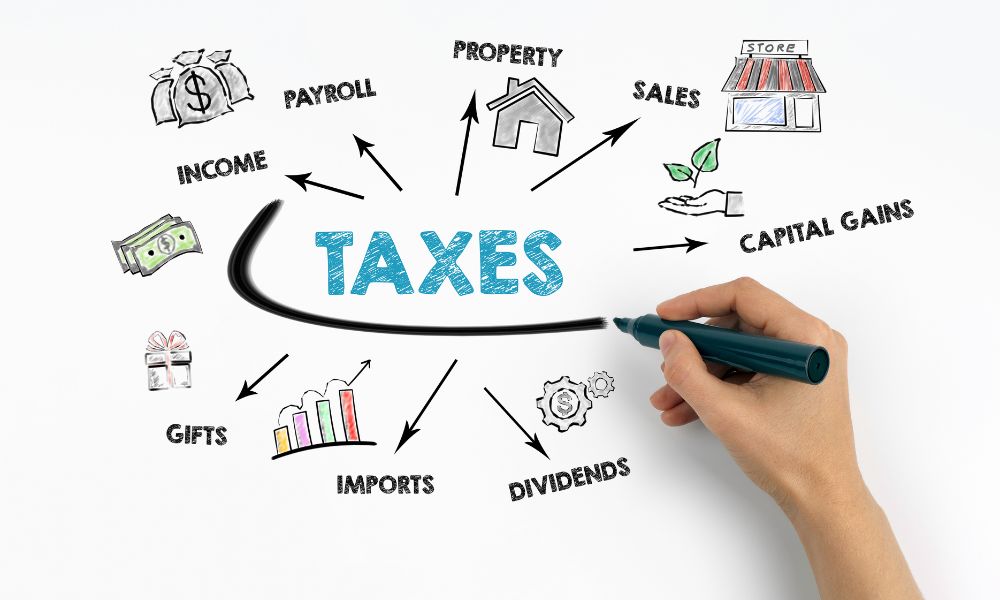
Proactive tax planning is a game-changer for your business strategy. Taking action before tax season hits can lead to significant savings and avoid potential pitfalls. It’s about using the tax code to your advantage. With the guidance of an international tax accountant, you can navigate complex regulations and maximize your financial potential. By planning ahead, you ensure compliance and reduce the risk of unexpected expenses. Focus on strategies that boost profitability and keep your business on solid ground. Implementing tax-efficient methods lays the foundation for long-term success. Each decision impacts your bottom line, and staying informed is your best defense. Learn how streamlined processes can enhance revenue, sustain growth, and solidify your competitive edge. Embrace proactive tax planning today and experience the positive shift in your business’s financial health. Remember, every little detail counts. Take control and watch your business strategy transform.
Understanding the Basics of Tax Planning
Tax planning is more than meeting deadlines. It’s about anticipation and smart decision-making. Knowing the basics can help you manage your finances better. A solid understanding of tax liabilities and available deductions is essential. It ensures you aren’t caught off guard by unexpected tax bills. Proactive tax planning involves predicting your tax obligations and taking steps to minimize them. This reduces financial strain and allows for better resource allocation.
Key Steps in Proactive Tax Planning
Effective tax planning requires a structured approach. Here are three key steps:
- Review Your Income Sources: Understand how different income types are taxed. Separate business income from personal earnings for clarity.
- Identify Deductions and Credits: Research potential tax breaks that apply to your business. For example, the IRS provides a list of credits and deductions that can reduce your taxable income.
- Plan Large Purchases: Consider timing major expenses to coincide with tax benefits. This can reduce your taxable income for the year.
Benefits of Proactive Tax Planning
Consistent tax planning offers multiple advantages:
- Cost Savings: Identifying deductions ahead of time reduces taxable income, resulting in lower tax payments.
- Reduced Stress: Knowing your tax obligations in advance eliminates last-minute surprises.
- Informed Decision-Making: Being proactive provides insights into how financial decisions affect tax liabilities, enabling better strategic choices.
Comparison: Reactive vs. Proactive Tax Planning
| Aspect | Reactive Tax Planning | Proactive Tax Planning |
| Approach | Last-minute adjustments | Strategic preparation |
| Cost Efficiency | Higher potential costs | Optimized savings |
| Stress Levels | High stress during tax season | Reduced stress |
| Financial Forecasting | Limited insights | Informed decisions |
Common Missteps in Tax Planning
Even with careful planning, some errors can occur:
- Overlooking Deductions: Small deductions often go unnoticed. Regularly update your list of eligible deductions.
- Poor Record-Keeping: Organized records are key. Keep all receipts and documentation to substantiate claims.
- Last-Minute Filing: Rushed filings increase errors. Submit tax returns well before the deadline to avoid mistakes.
Leveraging Expertise
Partnering with professionals enhances your planning efforts. An American Institute of CPAs certified accountant offers valuable insights and supports your strategy. Their expertise ensures compliance and identifies optimization opportunities you might miss. They help streamline your financial operations and maintain focus on core business goals.
Conclusion
Proactive tax planning transforms your business strategy by reducing costs, minimizing stress, and enabling informed financial decisions. This approach secures your business’s foundation, ensuring sustainable growth and stability. Implement these strategies today to take control of your financial future. Engage with knowledgeable professionals who provide guidance tailored to your needs. In the long run, proactive planning not only saves money but also strengthens your business’s resilience against financial uncertainties.
